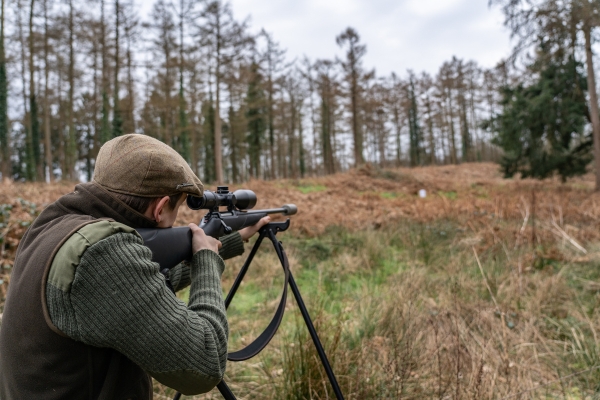
Wild venison: a valuable resource
Wild venison provided by BASC-trained deer stalkers aligns with Labour’s commitment to sourcing food with minimal environmental impact.
Get information on the legal shooting season for mammals and birds in the UK.
Apply for funding for your project or make a donation today
Comprehensive information and advice from our specialist firearms team.
Everything you need to know about shotgun, rifle and airgun ammunition.
Find our up-to-date information, advice and links to government resources.
Everything you need to know on firearms law and licensing.
All the latest news and advice on general licences and how they affect you.
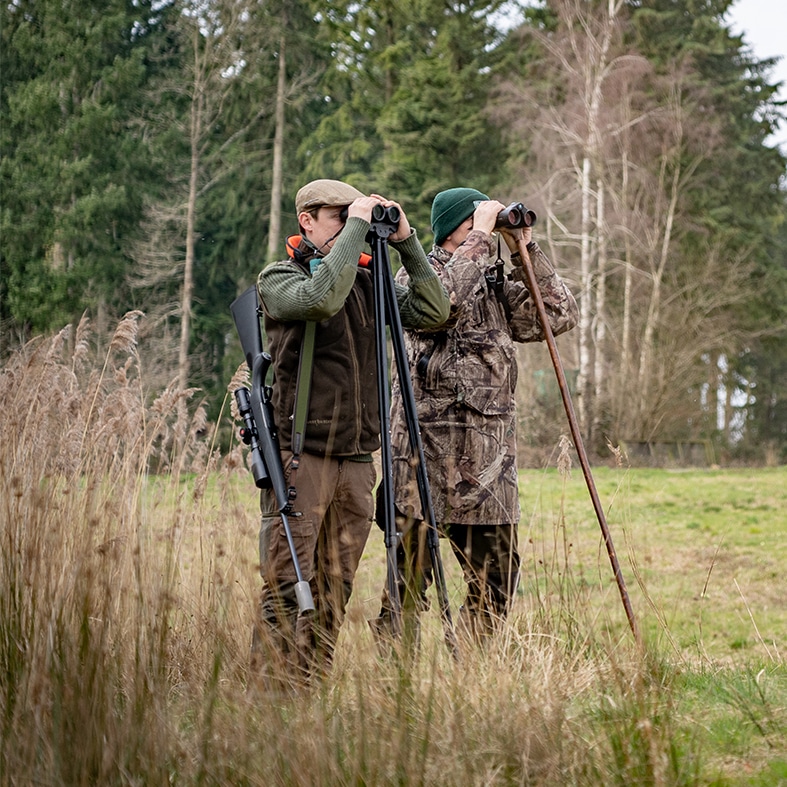

I was very lucky growing up, as my grandfather was a gamekeeper on a large estate in North Yorkshire and I spent every spare hour with him learning all about shooting and trapping. I say shooting, but all he had was a large blunderbuss of a 12 bore shotgun. He had no rifles – rabbits we ferreted, foxes were dealt with by the local hunt, and at that time there were no deer in that part of Yorkshire. So, although my background in shooting is largely traditional, I had no experience or knowledge of deer and rifles when I moved to Hampshire in my early 20s.
In Hampshire I made friends with a local gamekeeper, and he was kind enough to take me out to shoot my first deer – a small roe buck in a wood just outside Basingstoke. In fact, I’ve just seen the wood from the train on my journey up to London as I write this piece. Although I’ve shot a few more deer since then and forgotten an awful lot in the intervening years – that occasion is etched deep in my mind.
At Sparsholt College where I was a lecturer, I was also able to rub shoulders with some of the great and good of the deer world, all of whom have influenced my development. One who deserves specific mention is Jamie Cordery, who as a friend and colleague has continued to provide tremendous support throughout my career. Jamie retired earlier this year from his role as a deer officer with the Forestry Commission. There are countless deer managers across the UK who he has had a major influence over. Initially in his role as the deer specialist at Sparsholt, but also in his work with the Deer Initiative and as author of their Best Practice Guides.
The point of this little look into my background is to emphasise the fact we all need mentoring. Regardless of our experience or skill level it is good to have someone to call on to provide advice when something goes wrong or just that your actions are/were correct. This idea of having a mentor is nothing new and indeed that is exactly what a friend or relative provided in the traditional way into country sports.
What is difficult in this day and age is knowing someone who is willing and able to act as your mentor and provide the necessary guidance in your development as a deer stalker. I think we may have a solution, of which more later.
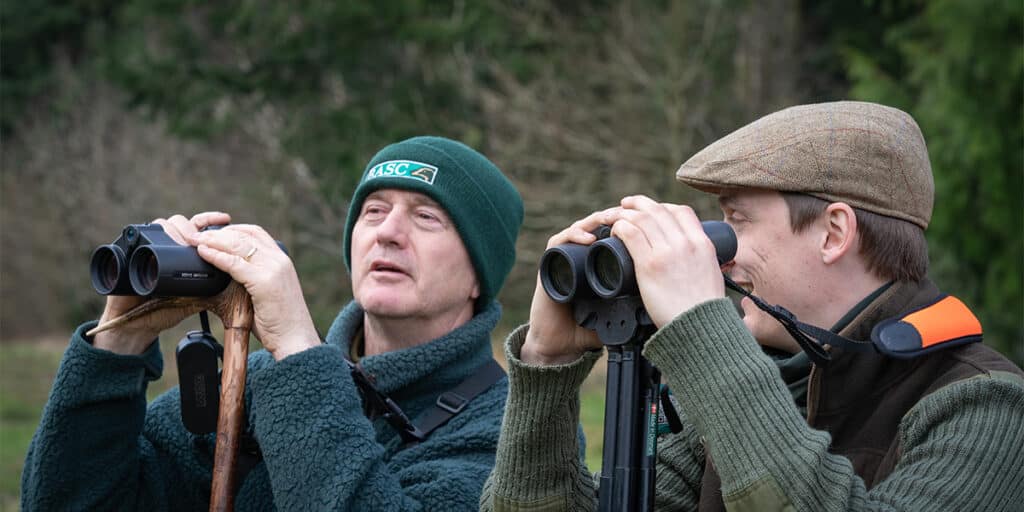
So, what should a deer stalking mentor provide? For many people who are taking their first steps into deer management, access to suitable ground is the hardest thing to get. It’s a bit of chicken and egg – in that you can’t get a landowner to give you permission to shoot on their land without sufficient experience, but you can’t get that experience without having access to land. Therefore, an ideal mentor should have access to deer ground and authority to take other people on that property.
This doesn’t automatically mean they will immediately let you shoot their deer. Like all apprenticeships/training programmes your journey should be a series of short steps, each building on the last, until you are fully competent. Initially this may just involve shadowing the mentor, watching them shoot and gralloch an animal, learning about the deer and other species. Sometimes it may not involve actual deer stalking, but just helping with essential tasks such as moving highseats, cutting sight lines, and undertaking impact assessments.
As the relationship between mentor and trainee develops, then you may be allowed to pull the trigger, initially at a target and then under their supervision at your first deer. You will also learn how to process and inspect the carcass to a level so that it can enter the food chain. In my experience, once the trainee has their own rifle and trust between us builds further, I will place them in a highseat while I stalk the surrounding area. That way we quite often account for several deer in an outing. Finally, once they know the ground well and I am totally confident of their abilities I will let them stalk on their own.
The trainee gets to develop their skills to a point where they are ready to take on their own ground, but what do I as a mentor get from this relationship? Well, there a few selfish points that are worth mentioning. Firstly, an extra pair of hands opening gates, moving highseats and helping lift carcasses is always welcome. Hopefully they are good company, too. I’ve spent too long in the woods on my own, so it’s nice to have someone to talk to. And having a trainee also resolves lots of health and safety issues, especially around lone working.
There are of course more altruistic reasons for acting as a mentor. I have been very lucky to be able to do what I do, and it is good to be able to complete the circle. My biggest reward throughout my career has been to watch people develop and know I have played some small part in that. Seeing former students and trainees in their dream jobs is very satisfying.
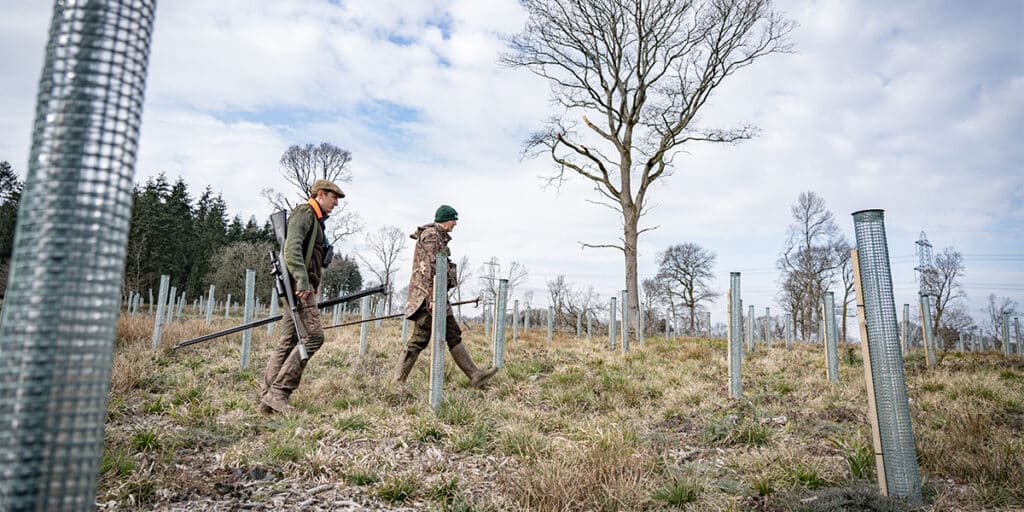
If we are to manage the UK’s deer population in the future, we are going to need more highly skilled deer stalkers, and more experienced deer managers to take a trainee under their wing and contribute to the next generation.
So how do we make this work? Back in January BASC launched a register of competent deer stalkers. This is primarily to provide landowners a list of stalkers in their area that they can approach when they are looking to find someone to manage deer on their property. We have more than 700 stalkers on this register, the majority of whom have DSC2. Additionally, as part of the registering process, they were asked if they would be willing to mentor a new deer stalker, and the majority said yes.
BASC also runs DSC1 courses across the UK, training around 700 people a year. Many of those that complete the DSC1 have not shot a deer nor have access to deer stalking but have already shown a serious commitment to developing themselves – ideal trainees. All we need to do is link those who have achieved their DSC1 with people on the register. If you are a DSC1 holder, then just email deer@basc.org.uk asking to be put in touch with suitable mentors in your area. If you are an experienced deer stalker willing to act as a mentor, then add your name to our register.
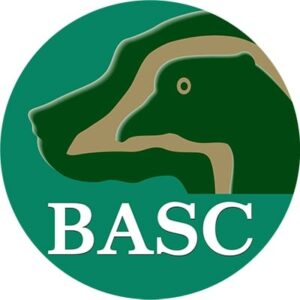

Wild venison provided by BASC-trained deer stalkers aligns with Labour’s commitment to sourcing food with minimal environmental impact.
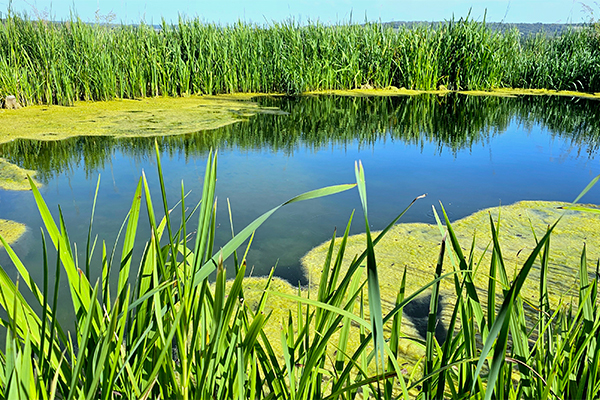
Wide-ranging conservation work being carried out on a Kent shoot is set to become a case study for the county’s Local Nature Recovery Strategy.
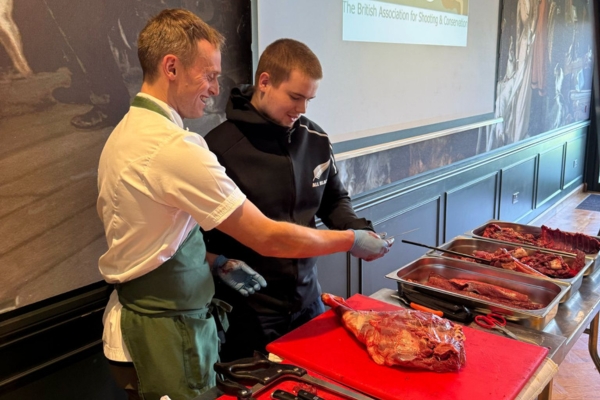
A group of chefs recently enjoyed an experience combining game butchery and cooking with clay shooting, at an event hosted by BASC.